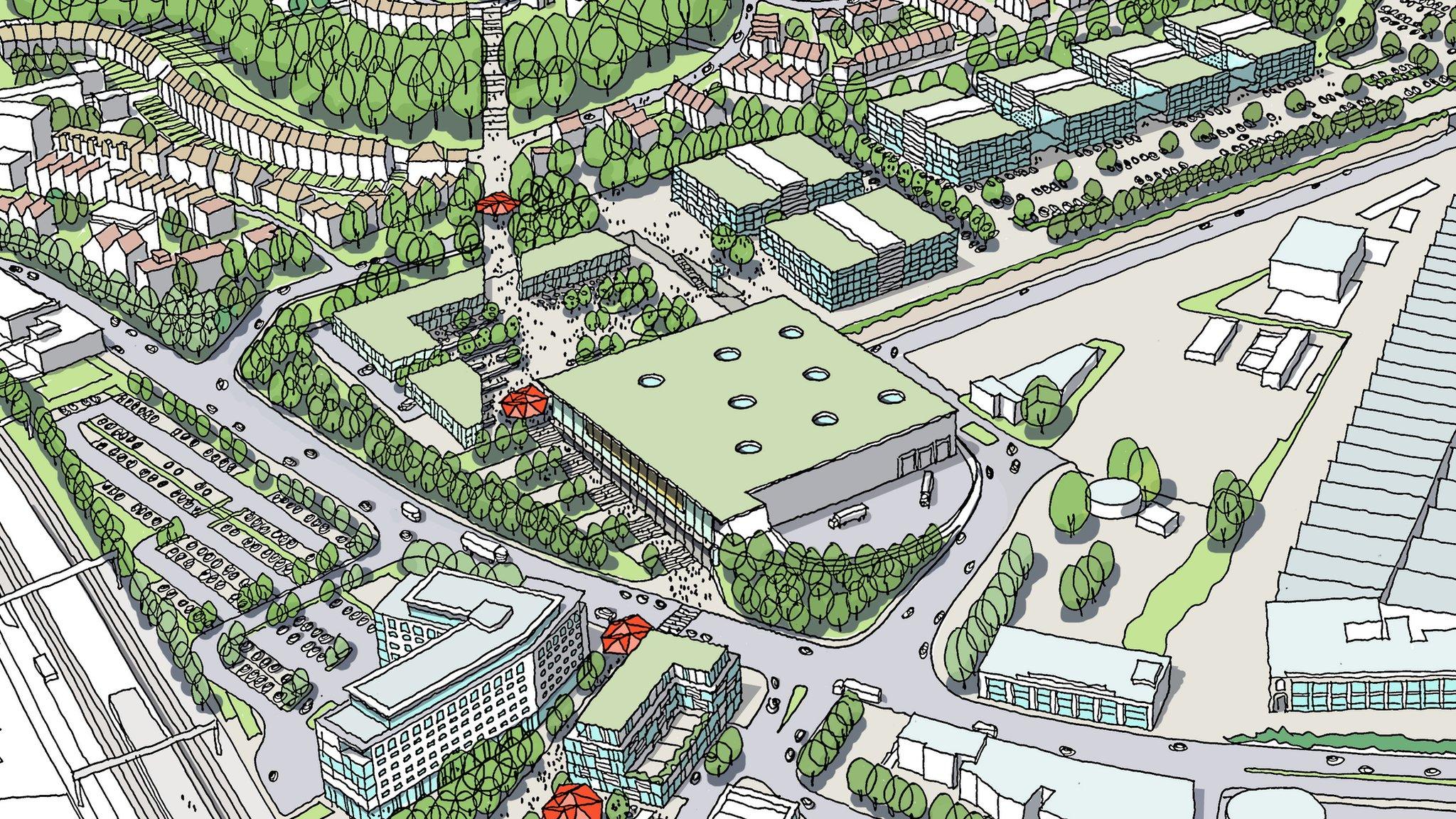Luton war memorial unveiled for Vauxhall factory workers
- Published
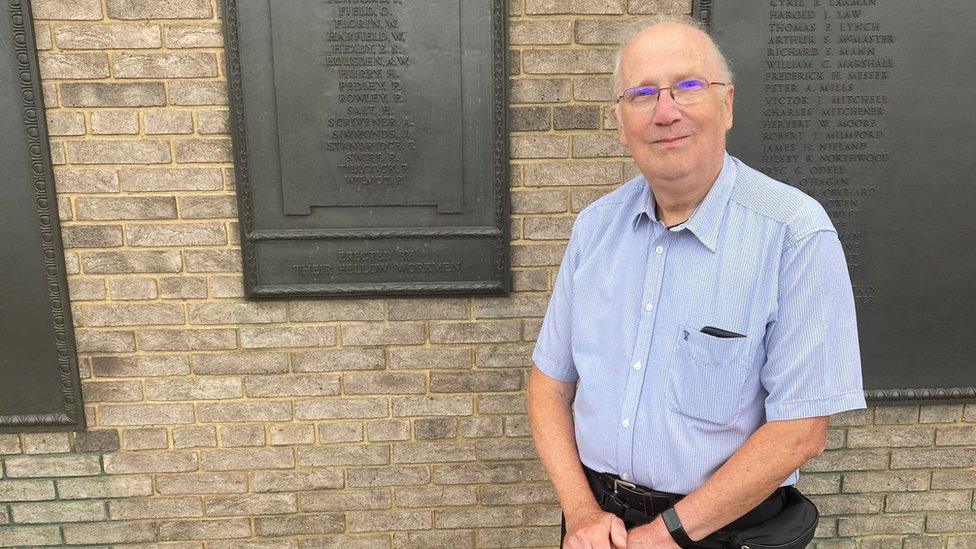
David Cook's grandfather Thomas Alfred Cook fought in World War One
A war memorial honouring Vauxhall workers who died during World War One and Two has been unveiled.
The restored plaques have been placed on a purpose-built wall on the site of the former Luton factory, which is being redeveloped.
The factory was bombed by the Luftwaffe in 1940, killing 39 workers and injuring more than 40.
David Cook, whose grandfather Thomas Cook worked there and died during the war, said it was a proud moment.
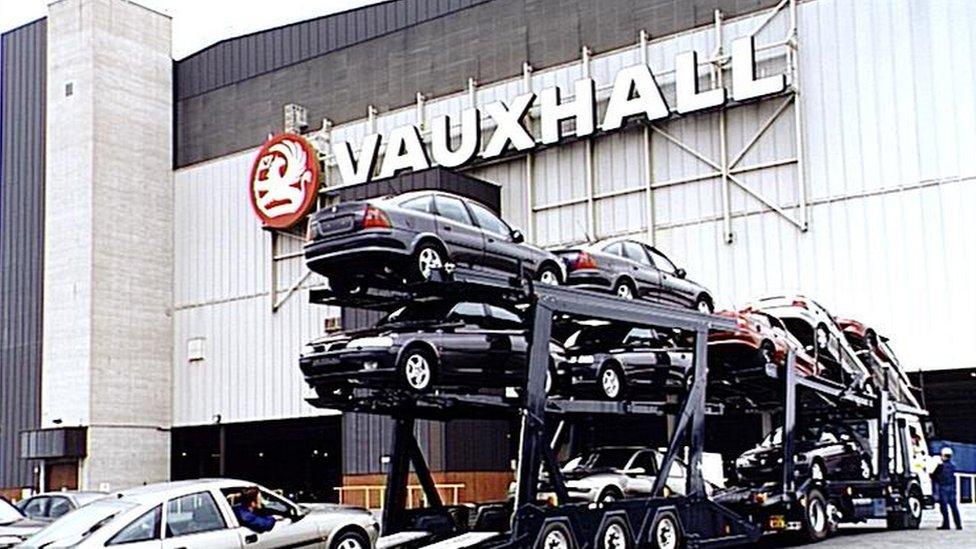
The Vauxhall factory in Luton closed in 2002 after operating for nearly a century
The war memorial, in front of newly built blocks of flats, was created by developers Strawberry Star.
Part of the planning permission - to allow the old factory site to be developed into about 1,000 homes, a hotel, offices convention centre, and shops - was for it to be rebuilt on the site.
The former Vauxhall factory, on Kimpton Road, started production in 1905 and closed in 2002.
Mr Cook said his grandfather was called up in 1917, when he worked as a cost clerk at the factory, and died six months later.
"I'm very proud that his name is up there, that Vauxhall, at least, had acknowledged that he worked for them and put his name on the plaque for memory," he said.
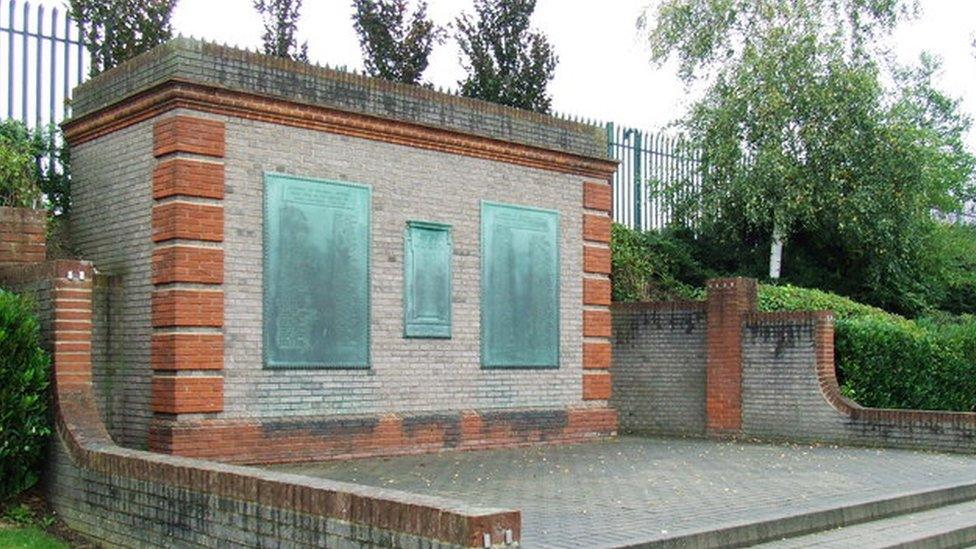
The old war memorial before it was demolished at the former Vauxhall factory, in Luton, Bedfordshire
Ian Coomber, who wrote Vauxhall - Britain's Oldest Car Maker, worked at the plant from 1963 to 2001.
"The Luftwaffe wasn't targeting Luton but they were being chased by the RAF and they dumped their bombs and nearly 200 bombs fell from Luton airport to Whipsnade, it was totally at random," he said.
"Fifty nine of those bombs fell on the Vauxhall plant and huge damage was done in V Block, the engineering block, and that's where most of the deaths incurred."
He said it was "a disastrous day" which caused production to stop for six days.
Mike Roberts, a former Vauxhall worker, said the developers had "made a brilliant job renovating the war memorial".
"Luton and Vauxhall motors played a significant part in winning the Second World War," he said.
That included producing thousands of Bedford trucks, while it was the home to the Churchill tank, made the side of jerry cans and steel helmets and ammunition, he added.

Find BBC News: East of England on Facebook, external, Instagram, external and Twitter, external. If you have a story suggestion email eastofenglandnews@bbc.co.uk, external
- Published4 November 2021
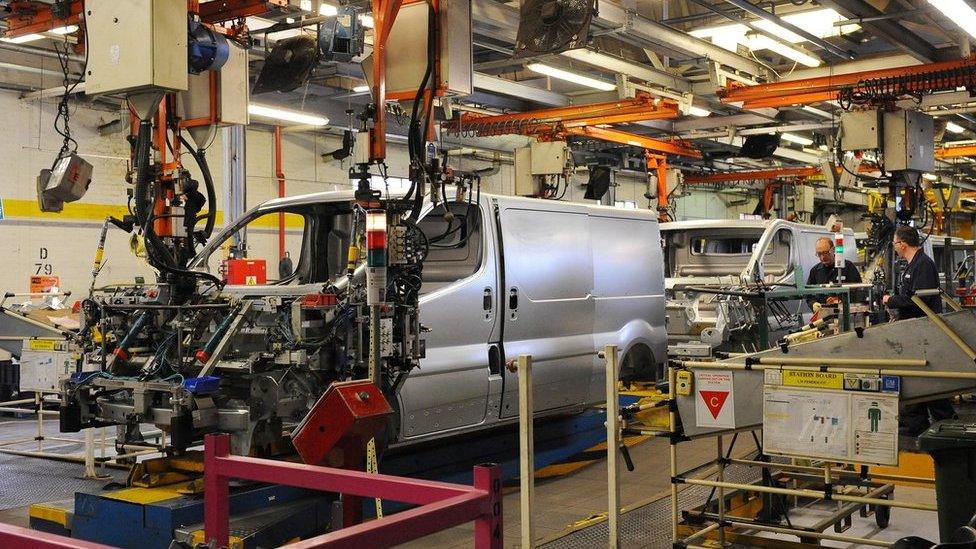
- Published24 September 2021
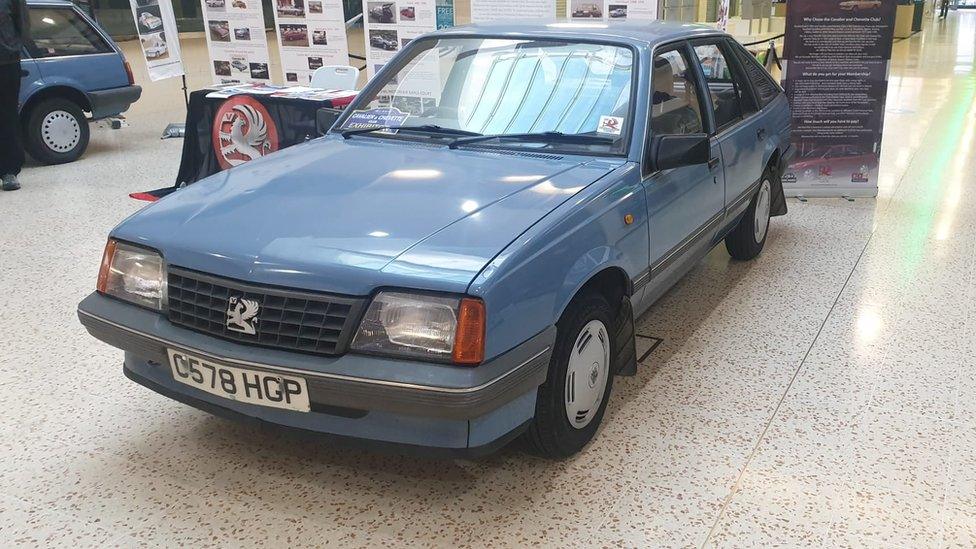
- Published28 July 2021

- Published19 November 2012
